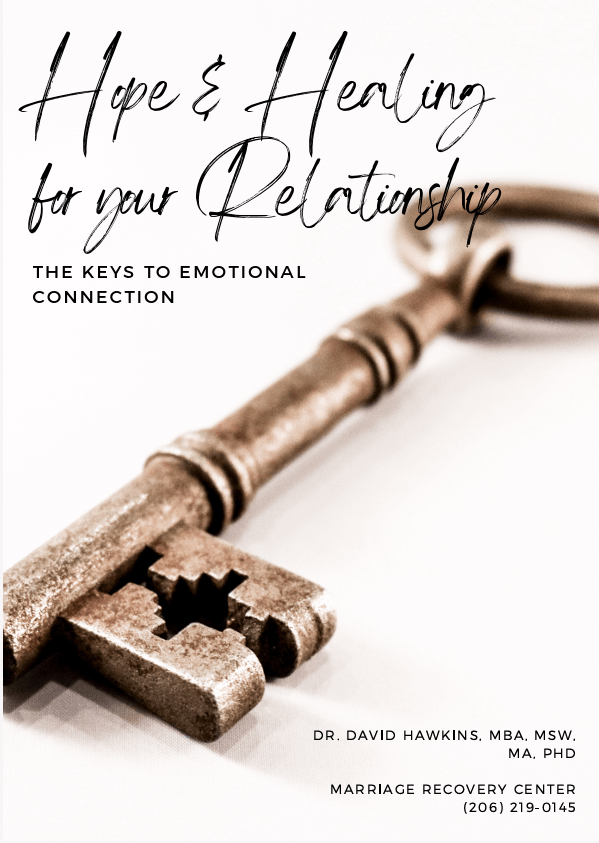Miscommunication is not necessarily what destroys a marriage. What comes out of your mouth simply reflects what’s in your heart. But, not being able to communicate does stifle rebuilding the relationship. When you have no confidence in being able to approach the other with something that pertains to them, you have no means to negotiate the relationship. A healthy relationship is dependent upon knowing that your spouse will listen, seek to understand and collaborate to resolve the issues that are damaging the relationship.
“Words are loaded pistols.” -Jean-Paul Sartre
There is great power in the words you use. Even the ones you speak in your own head. Simple nuances, preferred pronouns, and a reactive vs. proactive focus can determine whether the conversation stays open or ends in a fight. Ever wonder why so much of your counseling experience has been driven by learning to communicate better? It’s not because miscommunication causes the destructive issues. But, if you cannot communicate, you cannot resolve those issues.
You might think you’ve got a handle on how to talk to your spouse. You work hard to “speak the truth in love,” to wait for the “right time” when he or she isn’t hungry, angry, lonely, or tired, and to couch your issues with “I feel” statements. Or, maybe you don’t bother to care how you say things anymore because it hasn’t seemed to make a difference. Regardless, communication that keeps a conversation open is an art form necessary to change the trajectory of your relationship.
Words and Self-Protection
Voltaire once said, “One great use of words is to hide our thoughts.” Our words tend to be driven by self-protection! We think we are avoiding conflict by not saying what we need to say. We think we are “using our voice” when we stand up for ourselves, defend our space, or explain our position. We either tend to use words as a façade or a distraction, missing the power of being vulnerable and real. In the end, our self-protection can become self-sabotage.
You can talk about anything, at any time, but not in any way.
“Speak clearly, if you speak at all; carve every word before you let it fall.” -Oliver Wendell Holmes
One of my slogans is “you can talk about anything, at any time, but not in any way.” The point needs to be to keep the conversation going. The best place to start is to keep it out of the courtroom. The second an accusation is made, listening ends and fighting begins—fighting to be heard, accurately represented, understood, and rightly judged. Even if the accusation is true, it ends the conversation, and nothing gets resolved. You will have wasted your energy, again, trying to get your point across.
Keeping the Conversation Open
Here are some ways to keep a conversation open:
- Speak for yourself. Name your feelings, your motivation, your needs, and what you would like to see happen. Let your spouse speak for him/herself.
- Never assume you know. Be curious, ask questions, and give your spouse the room to tell you.
- Talk about what you feel, what you need to feel, and what you’d like to see happen to get there. This will indirectly address destructive behavior without staying stuck on arguing over the behavior.
- Stay grounded. Know who you are, who you’re becoming, and what you want your story to be. This will help you speak from a place of confidence and courage and will enable you to avoid being triggered or flooded.
- Be proactive, both in working to keep a conversation curious, open, and collaborative and in not allowing yourself to engage in nonsense. For those issues, you can’t seem to talk about, bring them to a session where the conversation can be facilitated in a healthy way.
Seek Help for Your Communication Issues
The Marriage Recovery Center specializes in helping couples learn to communicate effectively with one another. If you would like to learn more about communication and keeping a conversation open, contact our Client Care Team.








